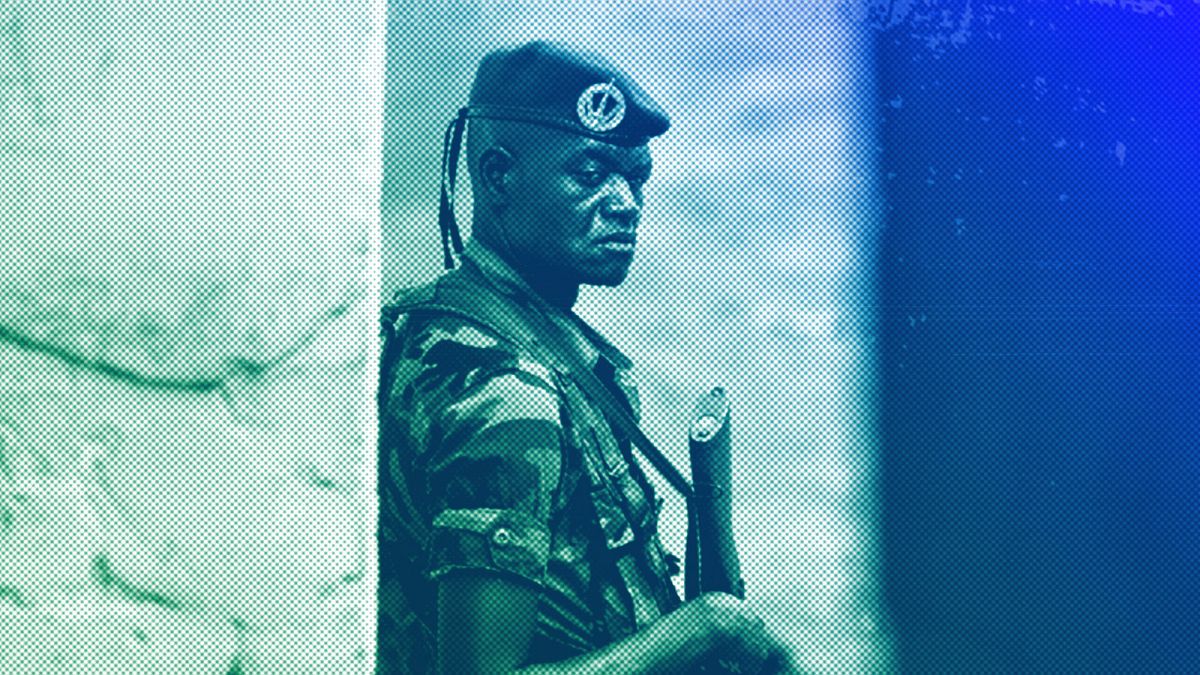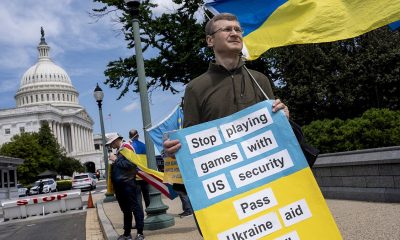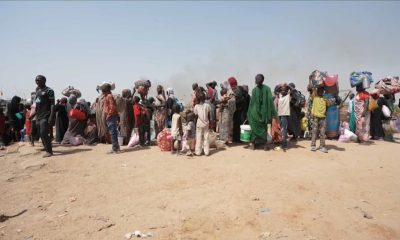General News
America’s disastrous ‘War on Terror’ in Africa is now a global security crisis

The opinions expressed in this article are those of the author and do not represent in any way the editorial position of Euronews.
Without a drastic shift in policy that supports the emergence of strong and cohesive African societies, the world will be thrown into a global security crisis of earth-shattering proportions, Christine Odera writes.
New shocking figures from the US Department of Defence are a glaring indictment of US policy in Africa: America’s “War on Terror” has disastrously spiked terrorism in Africa by an astonishing 100,000%, with Islamist violence alone jumping 20% in just the last year.
Decades of misguided US intervention have catapulted Africa into the epicentre of global terrorism, responsible for nearly half the world’s terrorist acts.
This alarming trend dominated discussions at the African Union summit in Ethiopia, amidst a backdrop of escalating violence and political chaos.
Countries like Niger, Mali, and Burkina Faso are already withdrawing from the Economic Community of West African States (ECOWAS) after military coups — a move that threatens to plunge the region into deeper turmoil.
The so-called Islamic State, having been territorially defeated in the Middle East, is also worryingly expanding its influence in West Africa and the Sahel, reportedly even readying itself to carry out attacks abroad once more.
The harsh truth is America and the wider Western approach, no matter how well-intentioned, sought security without fostering development and tragically achieved neither.
Because of these failures, Africa is now caught in the crosshairs of Washington’s authoritarian rivals, Russia and China.
They’re aggressively establishing military bases and deploying foreign mercenaries who commit horrific human rights violations, especially against African women, in a ruthless scramble for Africa’s riches.
More boots on the ground won’t solve anything
For two decades, American counter-terrorism efforts in Africa have been centred on two main fronts: Somalia and West Africa. Each saw huge spikes in terrorism last year with France even recalling 1,500 troops from Niger after the recent coup.
But in a UNDP report last year, the most powerful factor pushing people into violent extremism was “disaffection with government”, with 40% of recruits into militant groups citing economic hardship specifically.
Those who live by the gun are taught that it is the only way to survive and prosper.
This is a political message, not a religious one. Without addressing it appropriately, conflicts will fester and grow, plunging the world into endless displacement and refugee crises it cannot absorb or solve.
Global North nations must acknowledge their disastrous policies’ impact on Africa and urgently rebalance security and development strategies to prevent local terror groups from becoming emboldened enough to harbour global ambitions.
Because the solution isn’t increasing its armed presence — such as through the largest US-led joint military exercise — or forcing Western societal models onto Africa, but by embracing the continent’s unique strengths and diversity.
This means investing in Africa’s burgeoning youth, backing African-led peace and conflict resolution initiatives, empowering respected community and religious leaders over capricious and divisive politicians, and forging new economic partnerships that can counterbalance Russian and Chinese influence.
Faith-based organisations are taking the initiative
In the absence of unifying political leaders to create this counterbalance and bring Africans together, community and faith-based organisations are filling the trust deficit — and their potential and capacity to do more should not be underestimated.
For example, Islamic Relief Worldwide (IRW) goes beyond providing humanitarian aid: they are peacebuilders in conflict zones, offering lifelines by pairing economic empowerment with education to uproot the seeds of extremism and strengthen communities from the inside out.
Locally in Kenya, the Inter-Religious Council of Kenya (IRCK) unites diverse religious groups to dismantle extremist ideologies, hosting transformative peace workshops and fostering a culture of interfaith understanding in regions plagued by violence.
Other NGOs like the Muslim World League (MWL) work regionally to promote a tolerant vision of Islam through groundbreaking documents like the Charter of Makkah which was signed by 1200 prominent Islamic figures from 139 countries in 2019.
The Charter is actively being implemented through counter-extremism and capacity — which supports human rights, religious tolerance, and women’s rights — to strike at the core of why individuals turn to terrorism.
The MWL’s Secretary General, Dr Mohammed Al-Issa, has already forged ties with the African Islamic Union, an organisation with an estimated 100 million followers, which is now implementing the Charter to train a new generation of Imams across the region.
We’re failing to learn from our failures
The reality is that changing behaviours and attitudes for a day only requires the kind of transactional relationships that Russia and China offer, but changing the dynamic between communities for the long term requires the kind of tireless and sensitive approach adopted by influential civil society and grassroots leaders.
The opportunity for the West to finally get things right remains: reorientate towards strengthening civil society over a cold, security-above-all-else approach that has not even contained the problem of extremism, let alone put into motion solutions to solve it.
Failure to learn from failed policies risks a future where a continent, soon home to a quarter of the world’s population, spirals further into extremism.
To reverse this trend, we must not only rally around leaders who have consistently demonstrated moral leadership in times of crisis but also support their mission to create new generations of African leaders who do the same.
The stakes couldn’t be higher with Russia and China looking on. Washington’s war on terror failed dramatically in Africa, and without a drastic shift in policy that supports the emergence of strong and cohesive African societies, the world will be thrown into a global security crisis of earth-shattering proportions.
Christine Odera is a Kenyan peace and security expert. She is Member of the Board of Directors (Council) for Kenya’s National Youth Service (NYS), Co-Chair of the Kenya Coalition on Youth Peace, and former Global Coordinator of the Commonwealth Youth Peace Ambassadors Network based in London.
At Euronews, we believe all views matter. Contact us at view@euronews.com to send pitches or submissions and be part of the conversation.
Source
Disclaimer: No copyright infringement intended. All rights and credits reserved to respective owner(s).























